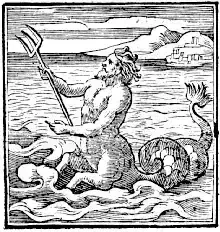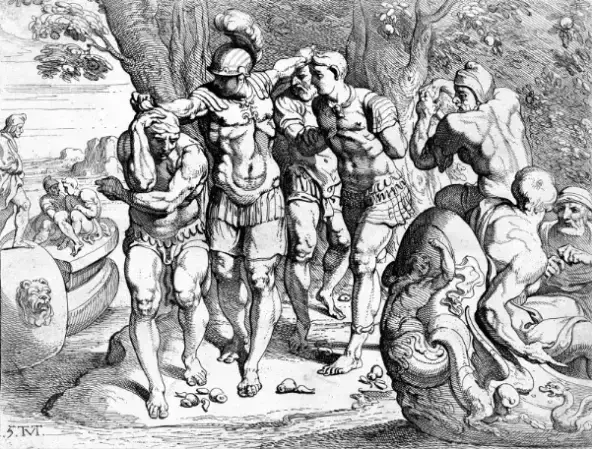Proteus

In Greek mythology, Proteus (/ˈproʊtiəs, ˈproʊt.juːs/ PROH-tee-əs, PROHT-yooss; Ancient Greek: Πρωτεύς, romanized: Prōteús) is an early prophetic sea god, often associated with rivers and oceanic bodies of water. He is one of several deities referred to by Homer as the "Old Man of the Sea" (hálios gérôn). Some sources describe Proteus as the god of "elusive sea change," emphasizing the ever-changing nature of the sea and the fluid quality of water.
Proteus possesses the ability to foretell the future, but, in a myth common across cultures, he can change his shape to avoid revealing it. Only those who can capture him are able to force him to answer. This ability to transform gave rise to the adjective protean, meaning "versatile," "mutable," or "able to assume many forms," often carrying positive connotations of flexibility, adaptability, and versatility.The name Proteus is thought to suggest "the first" (from the Greek πρῶτος prōtos, meaning "first"), as prōtogonos (πρωτόγονος) means "primordial" or "firstborn." While its exact meaning remains unclear, in myths where he is described as the son of Poseidon, it may refer to him being Poseidon's eldest son, older than Poseidon's other son, the sea god Triton.
The first recorded instance of the name appears in Mycenaean Greek, although it is uncertain whether it refers to the god or simply a person. The name is attested in Linear B as 𐀡𐀫𐀳𐀄 (po-ro-te-u).


